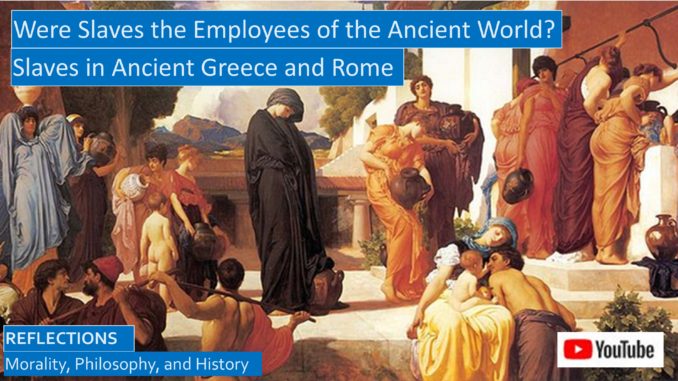
We are tempted to view slavery as something that went away with the Civil War, that with regards to slavery the modern world is so morally superior to the ancient world. The truth is that there were no employees in the ancient world, that slaves in the ancient worlds did the work that employees are hired to do in today’s world.
To understand the role of slaves in the ancient world we have a totally distorted picture when we only focus on the moral wrong of owning another person, treating servants like talking draft animals. The other aspect of slavery is paying someone such low wages that they cannot feed their family with dignity, that they feel like they live forever on the edge of the abyss, where the slightest crisis could force them to live in the streets. Someone who earns starvation wages is very much a modern-day slave.
In his lectures on Ephesians, Dr James Boice suggest that the section on slaves on masters does apply to employees and employers today.[1] How does this work? In Ephesians, let us simply replace the word “slave” with “employee” and “master” with “manager” and see what St Paul in Ephesians can teach us:
“Employees, obey your earthly managers with fear and trembling, in singleness of heart, as you obey Christ; not only while being watched, and in order to please them, but as employees of Christ, doing the will of God from the heart. Render service with enthusiasm, as to the Lord and not to men and women, knowing that whatever good we do, we will receive the same again from the Lord, whether we are slaves or free. And, managers, do the same to them. Stop threatening them, for you know that both of you have the same Master in heaven, and with him there is no partiality.”[2]
How do employees differ from slaves? One major difference is employees can choose their masters. There is no democracy at work, the boss tells you what he expects, and it is the employee’s job to meet his expectations. Even when employees are college educated with professional backgrounds and are expected to tactfully provide their input on the future direction of the company, the boss has the final say on the direction the company will take.
You may rebel at the thought of comparing slaves to employees. But there were no employees in the ancient world, there were independent contractors, but slaves assumed the roles of today’s employees. Like employees today, there were skilled and unskilled slaves. In some ancient societies slaves could be freely bought and sold and slave families split up, in other ancient societies they were more like serfs. For example, slaves were allowed to have families and live apart from their masters in Egypt, Sparta, and Babylon, and these serf-like slaves could not be sold. We read in the Bible that the patriarchs had servants, whether they could freely leave is not clear, though they probably would have had nowhere to go.We know there were slaves in Egypt, because the Deity Elohim in the Torah never tires of reminding his people that they had better be merciful to widows and orphans and the sojourners, or immigrants, in their land, since they were once slaves and sojourners in Egypt. Since the Jews were seen as slaves definitely means they found themselves near the bottom of the social hierarchy, though Exodus does reveal that they lived in their own community. However, many Egyptian scholars dispute that slaves helped build the pyramids, that many were farmers who were idle after the harvest was brought in.[3] Indeed, since the Egyptian pharaoh had so much more power than other ancient monarchs, which are more highly organized government bureaucracy, you can argue that everyone in Egypt was a slave to Pharaoh, so great were his powers.
Ancient sources inform us that domestic slaves or servant could truly be a member of the family. In the Odyssey, when Odysseus lands in Ithaca, the goddess Athena disguises him as a beggar, and he first visits his trusted slave Eumaeus, the swineherd. The father of Eumaeus was a king of an island near Syria, but he was tricked and sold into slavery, and was purchased by Laertes, father of Odysseus, Eumaeus stands with Odysseus and his son while they slay the suitors holding his wife Penelope hostage.
http://www.seekingvirtueandwisdom.com/odyssey-blog-3-odysseus-returns-home-to-ithica/
We also have a blog comparing the captured concubine slave girls to the passages in the Torah prescribing the proper treatment of concubines captured during war. The Torah dictates that these concubines should be treated as legitimate wives, a far higher status that concubines enjoyed anywhere in the ancient world:
http://www.seekingvirtueandwisdom.com/iliad_blog02/
Abraham trusts his oldest servant with a camel loaded with dowry goods to cross the desert to the tent of his cousin Laban, and trusts his servant to return with Laban’s virtuous daughter Rebekah to wed his son Isaac.[4] Most commentators identify this servant as the servant Eliezer who was heir to the house of Abraham before he was supplanted by the birth of Isaac.[5] If this oldest servant is Eliezer, then he certainly refused to fall victim to the wiles of jealousy and envy.
We have sparse evidence what it was like to be a slave or servant in the ancient world. We have a hard time imagining what is actually like living as a servant trapped in servitude. Recently the Atlantic Magazine published an article, “My Family’s Slave,” which told the story of a Filipino servant, and relates some of the human dilemmas involved, and I think would help us understand how domestic slavery worked in the ancient world. The author states, “She lived with us for 56 years. She raised me and my siblings without pay. I was eleven, a typical American kid, before I realized who she was.”
https://www.theatlantic.com/magazine/archive/2017/06/lolas-story/524490/
In his lectures on the Industrial Revolution, Professor Alliitt says that the Southerners who defended slavery compared slaves favorably to the industrial factory workers of England. Both were very poorly paid, but at least masters took care of their slaves when they grew old or were no longer able to work.[6] And in his lectures on the Victorian Age he has a lecture on what it was like to be a domestic servant in Britain.[7]
What does it truly mean not to be a slave? What does it truly mean to be free? We have forgotten the concept of the Four Freedoms pronounced by FDR during the dark days of World War II when Germany and Japan enslaved much of Europe and Asia:
Freedom of speech, Freedom of worship,
Freedom from want, freedom from fear.
Freedom from want includes constructing a safety net for our less fortunate citizens, including economic opportunity, social security, and decent health care.[8] The New Deal seeks to ensure a basic entitlement to all citizens, the concept that if someone worked hard for forty hours a week, no matter how menial his job, that this full-time worker was entitled to afford a decent house, decent food, decent clothes, a decent life lived with dignity.
This is our second blog on slaves in the ancient world:
http://www.seekingvirtueandwisdom.com/slaves-in-ancient-greece-and-rome-blog-2/
[1] https://www.oneplace.com/ministries/the-bible-study-hour/series/ephesians
[2] https://www.biblegateway.com/passage/?search=ephesians+6%3A5-9&version=NRSVCE NOTE: We replaced slave with employee, and master with manager.
[3] Bob Brier, “The History of Ancient Egypt”, lectures recorded by The Great Courses (www.thegreatcourses.com, 1999)
[4] https://www.biblegateway.com/passage/?search=Genesis+24&version=NRSVCE
[5] https://www.biblegateway.com/passage/?search=Genesis+24&version=NRSVCE
[6] Patrick Allitt, “The Industrial Revolution,” lectures recorded by The Great Courses (www.thegreatcourses.com, 2014)
[7] Patrick Allitt, “Victorian Britain”, lectures recorded by The Great Courses (www.thegreatcourses.com, 2002), Lecture 34, Domestic Servants

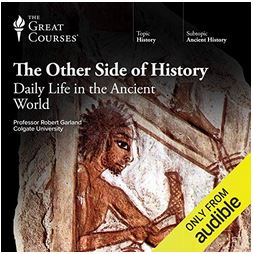
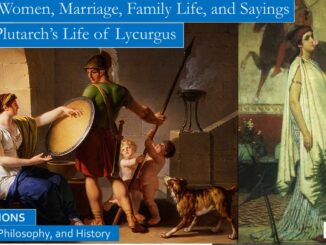
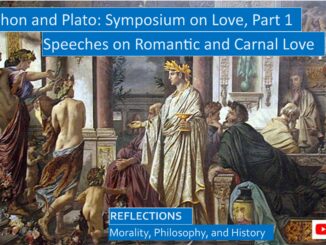
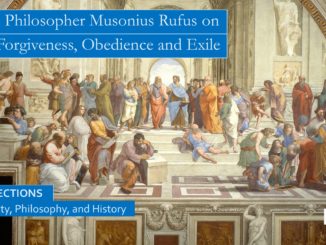
6 Trackbacks / Pingbacks